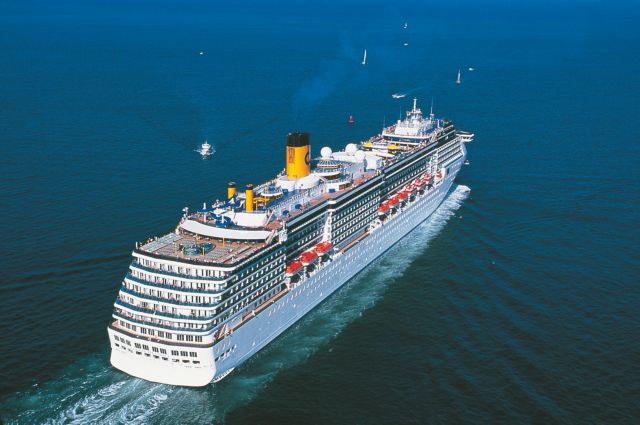
The assessment that Greece is developing into an important gateway for cruises in the Eastern Mediterranean and Europe and has the potential to grow even further, especially if it invests in homeporting and more passenger service infrastructure in base ports, expressed today, from Thessaloniki, Pierfrancesco Vago, president of the Cruise Lines International Association (CLIA) and executive chairman of industry giant MSC Cruises.
He also expressed the hope that the government that will emerge from the upcoming elections in May will take care of the legal framework regarding the reservations of berths for cruise ships.
The cruise sector in Greece “breaks” records in 2023 as well
Speaking at the “7th Posidonia Sea Tourism Forum”, the largest international event of the sector in the Mediterranean, hosted for the first time in Thessaloniki, Mr. Vago recalled that last year Greece managed to surpass the milestone of 1 billion euros in revenues from cruise, creating 15,000 (direct and indirect) jobs, while adding that Thessaloniki is also now visible on the “map” internationally, with homeporting in the city (its use as a port of departure for round trips) having increased by 54% in year-on-year basis last year.
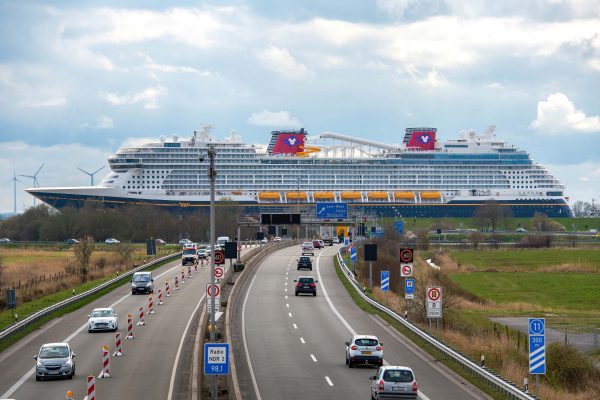
CLIA’s president also made special mention of the growing importance of human talent in the cruise industry, pointing out that training the skills of the next generation of maritime workers is a great opportunity for a maritime nation like Greece. Mr Vago also expressed confidence that the industry has weathered the storm of the pandemic and three years after the pandemic crisis is back to normal, with 33 million cruise passengers expected this year internationally and the Eastern Mediterranean “rising” by 11% from this point of view.
He added that each cruise passenger spends an average of 400 euros in restaurants and shops in the places where a cruise ship docks, creating significant economic traffic and strengthening local economies, while reminding that the goal is the zero carbon footprint of European ports by 2050, stating that by 2030 around 235 ports in Europe must be able to provide electricity from the land (shoreside electricity) to the ships they will receive.
There are already more than 800 pre-bookings for cruise ships in Piraeus
The president of the Piraeus Port Authority (PPA SA), Yu Zenggang, mentioned the auspicious prospects for the cruise sector in Greece, both in terms of the port of Piraeus and that of Thessaloniki. He stated that he is sure that the situation in the sector is returning to normality more and more quickly and that an increase in activities and growth is expected, while he expressed the belief that “Thessaloniki will be the next extremely important port in Greece in terms of the cruise industry”. The president of PPA SA (Cosco) also added that in the next two to three years an effort is being made to complete the major projects in the port of Piraeus, which will allow the management and docking of large cruise ships, with a capacity of up to 9000 people, while he announced that for 2023 cruise ship pre-bookings have already exceeded 800 (for the port of Piraeus), of which 80%, i.e. approximately 630-650 ships, will be homeporting (in 2022 there were 670 approaches, with 880,000 passengers and the percentage of homeporting to be 60%).
It is estimated that the image of the cruise industry is now very positive, with the prospect that the industry will exceed the results of 2019 this year, as estimated by the CEO of Celestyal Cruises, Chris Theofilidis, who added that the interest of travelers to participate in a cruise is becoming increasingly larger, “much more than pre-pandemic”. Wybcke Meier, CEO of TUI Cruises GmbH, also expects a great demand for the cruise, “even greater than in the past, this summer, who announced that the company’s new cruise ship, the “Mein Schiff 7“, which will use green methanol, will be available in 2024, “in response to increasing demand”, while between late 2024-early 2025 and 2026, two more of the company’s ships are expected to be built in Italy.

The durability and dynamics of the cruise sector, which exceeds the corresponding of overall tourism, was underlined by Marie-Caroline Laurent, general manager of CLIA Europe, while she also pointed out that from January 1, 2024, the new measures for the environment in the EU, will also affect cruise lines, as “we are no longer talking about LNG (liquefied natural gas) but about synthetic biofuels. The fact that the Greek government is investing in green hydrogen is great news, but this fuel needs to be usable by the shipping sector and to be able to be stored in ports,” he said.
As reported by state news agency AMNA, in the context of the 7th Posidonia Sea Tourism Forum, a memorandum of cooperation was signed between the Hellenic Ports Association and Cruise Shipowners and Shipping Agencies. On the part of the Ports Association, the memorandum was signed by its president – and executive president of the Thessaloniki Port Authority – Thanos Liagos, and on the part of the Cruise Shipowners Union, its president, Giorgos Koumpenas.
Latest News

How to Buy Your First Home Tax Free In Greece
Greece's tax authority has compiled a guide addressing the most common questions regarding the transfer tax exemption for first-time home purchases.

Greece’s Inflation Eases to 2.5% in February, but Key Costs Still Soar
The data shows significant price increases in certain sectors, with hotels seeing a rise of 17.5%, air travel prices going up by 10.8%, rent rising by 9.9%, and health insurance premiums climbing by 7%.
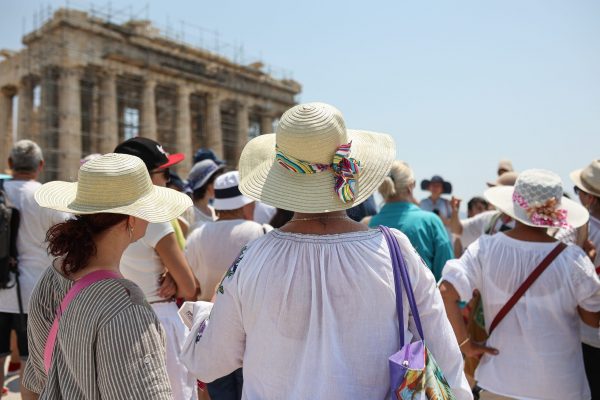
Greek Tourism Booms with 6-7% Rise in Bookings This Season
Data from ITB Berlin highlights Crete and Rhodes as the top-performing destinations, maintaining their strong appeal among European travelers with double-digit booking increases.

ENFIA 2025 Property Tax Statements Now Available on Taxisnet
Properties valued at up to 500,000 euros that are insured against earthquakes, fires, and floods for the entire duration of 2024 will receive a 20% discount, double the 10% offered last year.
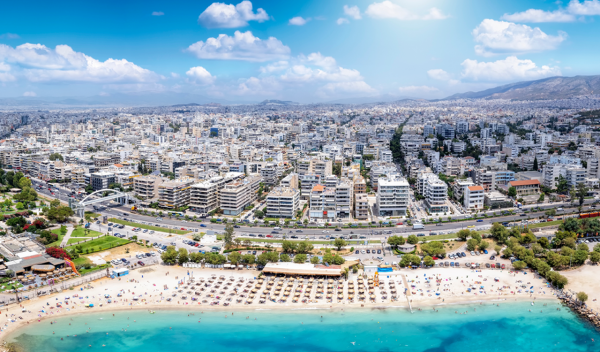
Attica’s Real Estate Market: Prices Surge 88% Since 2017
The city center remains a key area of interest, with an average asking price of 2,524 euros per square meter, reflecting a 5.21% increase from February 2024.
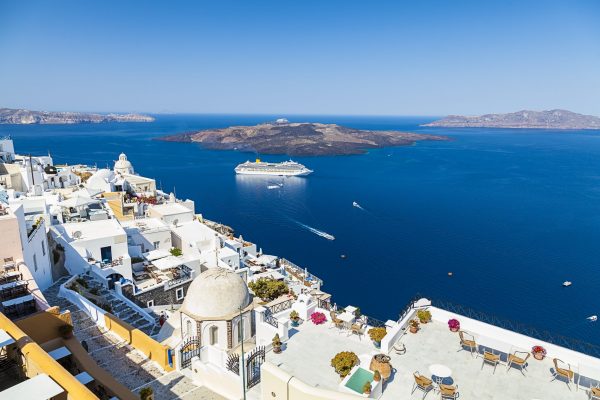
Cruise Tourism in Greece to Soar Despite Santorini’s Earthquakes
Another key development in Greece’s cruise industry is the increase in port fees, particularly in high-traffic destinations like Mykonos and Santorini

The Gender Pay Gap: Women Are Still Paying the Price of Inequality
The gender pay gap continues to persist across the European Union, according to Eurostat - Factors such as workplace discrimination, stereotypes, and the unequal distribution of family responsibilities contribute to its ongoing existence

International Women’s Day: The Legacy of Theresa Serber Malkiel
Many accounts have long associated the origins of International Women’s Day with a supposed March 8, 1857, textile workers’ strike in New York. Some even claim that Malkiel intended to honor that event

International Women’s Day: Celebrating Achievements, Advancing Equality
The United Nations plays a central role in International Women’s Day celebrations, selecting an annual theme to highlight pressing issues affecting women worldwide.

Morningstar DBRS Upgrades Greece to BBB, Trend Changed to Stable
The trend on all ratings has returned to stable from positive,

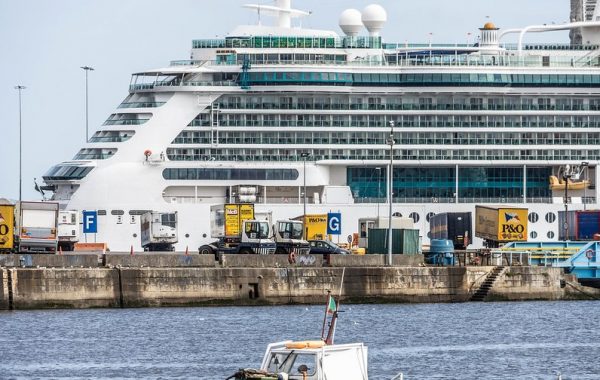





























![Ποιοι απαλλάσσονται από τον Ενιαίο Φόρο Ιδιοκτησίας Ακινήτων 2025 [Α Μέρος]](https://www.ot.gr/wp-content/uploads/2024/06/akinita-888-efimerida-600x400.jpg)


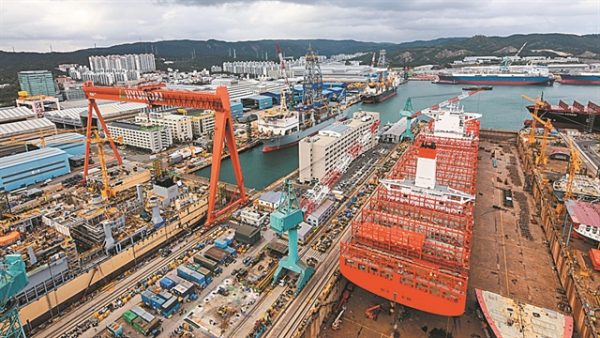






 Αριθμός Πιστοποίησης Μ.Η.Τ.232433
Αριθμός Πιστοποίησης Μ.Η.Τ.232433